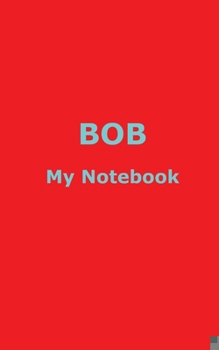BOB My Notebook
Select Format
Select Condition 
Based on Your Recent Browsing
Book Overview
A useful blank lined notebook with the name Bob in a convenient size of 5 x 8 inches (12.7 x 20.32 cm) dimensions. Portable paperback, suitable for briefcases, sports bags or backpacks. The notebook has 100 blank lined white pages, perfect bound with a glossy cover. A great gift for every occasion.
Format:Hardcover
Language:English
ISBN:0802716369
ISBN13:9780802716361
Release Date:October 2007
Publisher:Walker & Company
Length:336 Pages
Weight:1.56 lbs.
Dimensions:1.2" x 6.4" x 9.5"
Customer Reviews
3 customer ratings | 3 reviews
There are currently no reviews. Be the first to review this work.





















